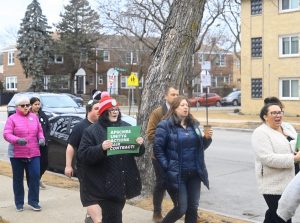Opinion | Social media must monitor harmful content
Government censorship vs the toxic world of live streaming
January 28, 2020
On March 15, 2019, Brenton Harrison Tarrant committed the worst mass shooting in New Zealand in the last 20 years. On that fateful day, he opened fire on two mosques, killing 51 people and injuring another 49. He was subsequently charged with 51 counts of murder, 40 counts of attempted murder and committing a terroristic act.
Tarrant used Facebook Live to stream the massacre of the first mosque that he victimized. The video lasted 17 minutes and had been posted for almost an hour before Facebook moderators removed it. It is extremely dangerous when people use social media in such a negative fashion. It inspires copycats, widens racial divides and sows fear and discourse around the world. When users share pictures and videos of these events, it inadvertently contributes to the dissemination of their messages.
Despite such catastrophic consequences, the Internet is arguably the most influential and important invention of all time. With it, we have seen the birth of social media, digital photos, streaming services, online gaming and live streaming. The internet is often used to date, order dinner, call a cab, review a business, share news or political ideas and even share memes. We have seen nondescript people achieve celebrity status just from streaming themselves playing video games, opening toys or even creating videos on how to tie a tie or put on makeup. In recent years, the internet has even been used to organize protests. But, when is it too much? This is a question we should ask ourselves about internet censorship. In recent years, we have seen inconsistencies concerning the public view of the internet. We have seen governments restrict internet access to either prevent the organization of protests or suppress international awareness about ongoing protests.
Many would say this is a gross overreach of power. On the opposite side of the spectrum, we have individuals that use live streaming to show inappropriate or gruesome scenes. For example, in May of 2016, a French woman live streamed her own suicide using Periscope, an app for live streaming. The stream ran for several minutes following the woman’s death until a man in an EMS uniform severed the stream.
At the launch of Facebook Live, Mark Zuckerberg was recorded describing it as “raw and visceral” and a “new, raw way to communicate.” The word “visceral” is derived from the Latin word “viscera,” which is defined as the internal organs in the main cavities of the body, especially those in the abdomen, i.e. the intestines. Visceral literally means relating to intestines or guts. It’s difficult to believe Mark Zuckerberg realized the integrity of the definition or how it would later translate in a literal sense.
Nevertheless, at what point should this behavior be restricted and when do these restrictions become too much? Does control and oversight infringe on the first amendment? Should it be allowed and if so, when?






